Algeria faces early legislative elections under threat of high abstention
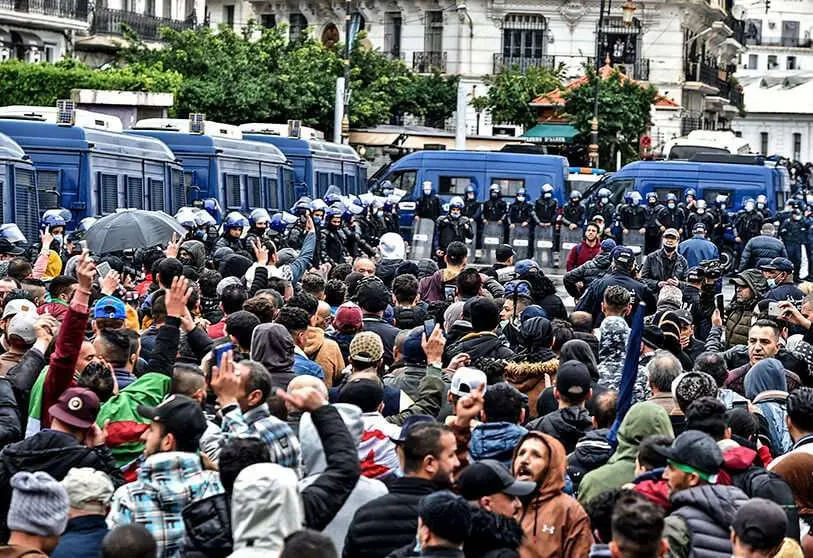
24 million Algerians are called to the polls this Saturday for early legislative elections that come within a political scenario marked by social protests led by the Hirak movement, which seeks a political renewal of the sphere of power that is considered to be led by figures linked to the traditional National Liberation Front and mainly by the army.
The President of the Republic of Algeria, Abdelmadjid Tebboune, announced new political reforms to build the "new Algeria" once he assumed power in December 2019 and after the referendum to reform the Constitution and the dissolution of Parliament. All of this with the declared aim of implementing the political reforms demanded by a citizenry fed up with the economic crisis the country has been going through, marked by the fall in energy market prices (the main source of financing for the North African nation), and also exhausted by the cases of corruption denounced for many years in the political sphere and by what it understands to be the same ruling class installed in power.
Algeria's president, who many still link to the old National Liberation Front leadership, and the army leaders who back him are hoping that Saturday's parliamentary elections will mark the end of two years of protests.
In these elections, moderate Islamist parties are aiming to win, but voter turnout is expected to be low due to prevailing scepticism.
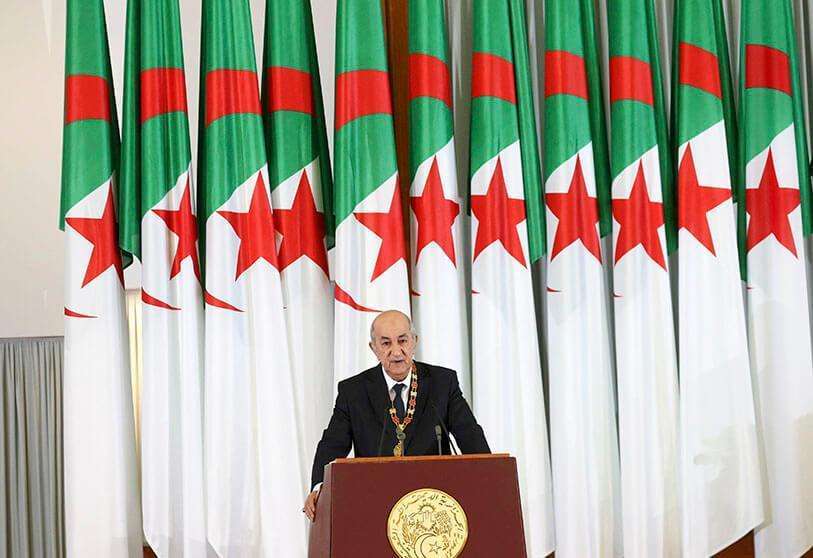
The elections come after security forces cracked down on the latest demonstrations channelled by the mass Hirak protest movement, which began in 2019 and forced the resignation of former president Abdelaziz Bouteflika, who was seeking a fifth term to remain installed in power.
The Hirak movement, which began in February 2019 and has rallied every Friday since then, except at specific times due to the coronavirus pandemic, has been calling for years for reforms in the country and for the traditional leaders of the National Liberation Front and, above all, the armed forces, considered to be the country's real rulers, as many analysts have pointed out. They also called for an electoral boycott, which could lead to a very low voter turnout, given the denunciation that power is monopolised by the same actors as always.
As on every Friday since the movement erupted in February 2019 to demand the resignation of then-president Abdelaziz Bouteflika and the departure of the National Liberation Front, which was the sole party in Algeria until the advent of greater democratic openness in 1989, thousands of people have continued to stage demonstrations in several cities, including the capital Algiers, and in parts of the mountainous region of the majority Berber Kabylia, the only one where the Algerian military regime has not yet managed to quell the protest.
The protesters continue to demand "a civilian and not a military system" and called for a boycott of Saturday's elections, which the government is presenting as "the real Hirak" against those who took to the streets in 2019, whom it now declares "a threat to the state".
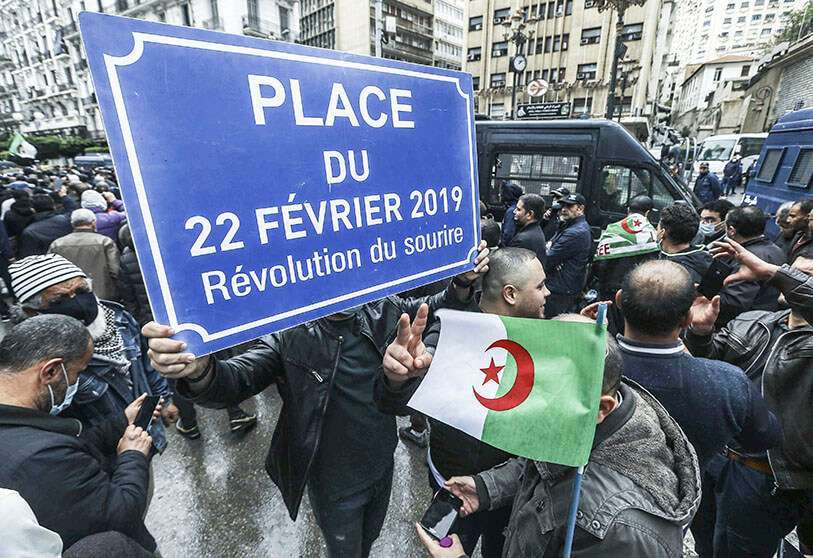
There is a lot of expectation about what will happen in the Algerian legislative elections because the country is not facing a good economic situation and because it is a regional military power, the largest country in Africa and has a long Mediterranean coastline. Depending on what happens, this could jeopardise stability in the Maghreb region, which is of vital importance for international geopolitics.
Although Bouteflika's successor, Abdelmadjid Tebboune, was elected president in 2019 and a constitution was approved after last year's referendum, many Algerians believe that the military leadership still retains real power, as various media and analysts have explained.
Since 2019, there has been a succession of massive and mostly peaceful demonstrations in Algiers and the rest of Algeria's major cities until the beginning of May, when the number of arrests of activists, journalists and citizens began to multiply in the face of tougher police action, especially in the capital and the large cities of the north.
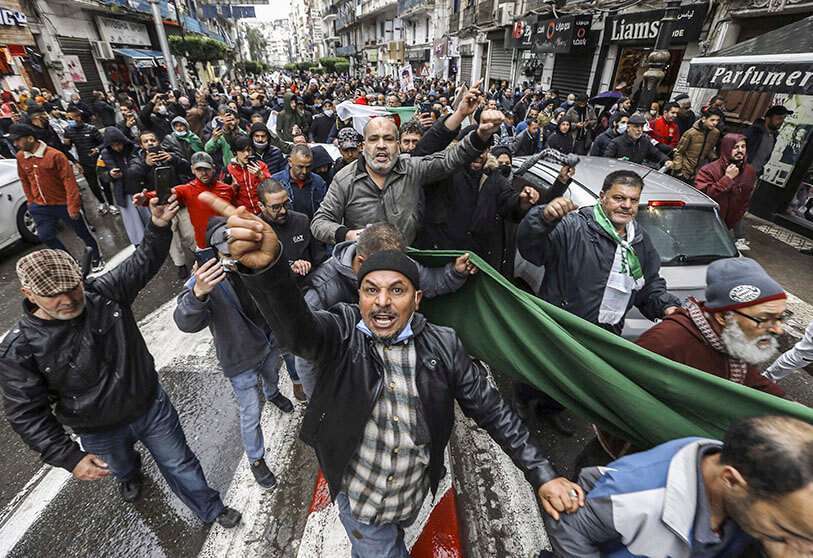
According to the Committee for the Defence of the Hirak Detainees, thousands of people have been arrested, hundreds of them have been tried and convicted, and dozens more remain in prison, mostly under preventive arrest, as EFE news agency reported. As reported by the Europa Press agency, several activists were arrested in the run-up to Saturday's elections, including Karim Tabbou, one of the exponents of the Hirak movement, and journalists Khaled Drareni and Ihsan el Kadi. Tabbou had been on provisional release since last July after he was arrested in 2019 for "attacking the morale of the army", "attacking the unity of the national territory" and "incitement to rebellion". Drareni, meanwhile, was released after receiving a two-year prison sentence for "undermining national unity".
The government is presenting these early elections as the culmination of a reform process launched in April 2019 following Bouteflika's resignation in the wake of the popular Hirak protests. Amid the protests, President Abdelmadjid Tebboune in February dissolved the People's National Assembly, the lower house of the Algerian parliament, and set 12 June as the date for elections.
Now, a total of 1,500 lists, 800 of them independent and 600 backed by 28 political parties, are vying for one of the 407 seats in the House, which has reduced the number of seats under the new electoral law. This will produce the new power that will have a five-year mandate.
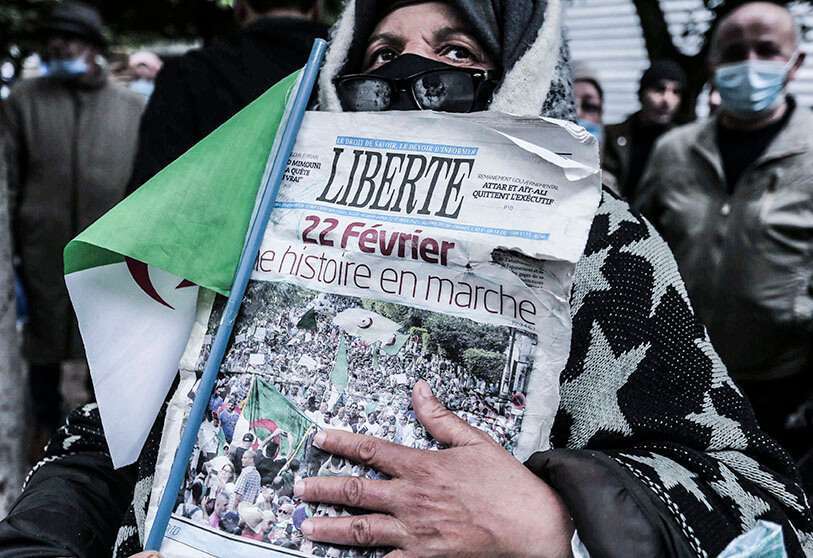
According to the Independent National Electoral Authority, the body overseeing the electoral process, thanks to incentives from the government, which is working to instil a sense of renewal, more than 13,000 candidates are under the age of 40, and of these nearly 5,700 are women.
The government also tried to give this image of renewal in the last presidential elections, which were won by Abdelmadjid Tebboune, but the abstention rate ended up being 60 per cent, something unprecedented in Algeria, a country where citizens are fed up with what they see as a sphere of power monopolised by traditional leaders linked to the party that has practically always been in power and by the army, the country's main governing body, as several analysts point out.
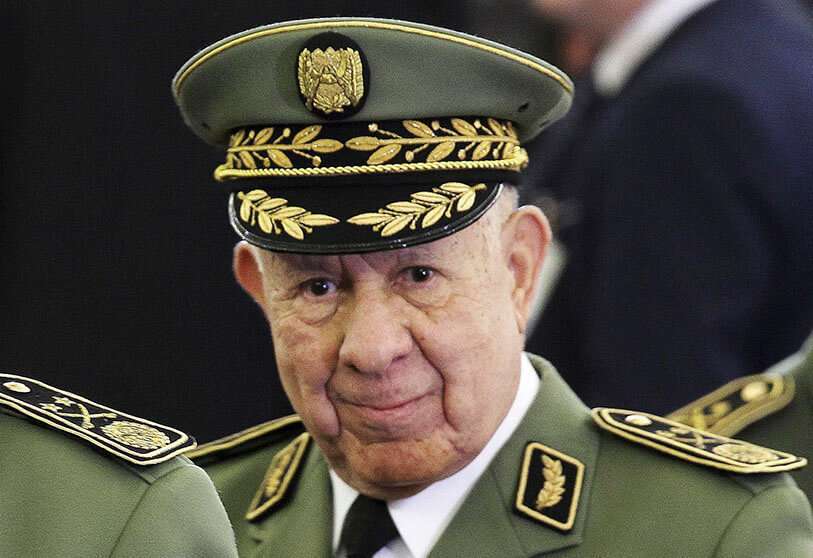
In the last legislative elections, held in 2017, victory went to the National Liberation Front, which has dominated Algerian politics since independence from France in 1962. This is a sign that this formation has retained power in the modern history of the North African country.
Now come the new legislative elections and a reflection of the "new Algeria", according to the country's president, Abdelmadjid Tebboune, who is determined to silence the Hirak social movement once and for all after the police repression of recent weeks.
These will be the seventh parliamentary elections in the country since the advent of multi-party democracy in Algeria in 1989.









